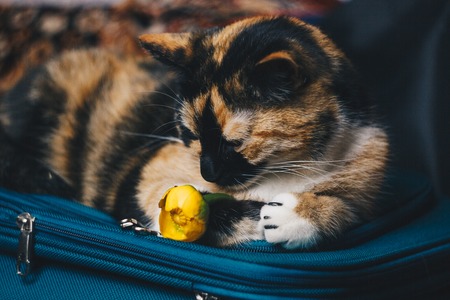Introduction to Pet Funerals in the UK
In recent years, pet funerals have become an increasingly recognised and respected tradition across the United Kingdom. As more people view their pets as cherished members of the family, there is a growing desire to honour their lives and say a proper farewell when the time comes. Arranging a pet funeral is not only about commemorating the special bond shared with animal companions but also about providing comfort and closure to those left behind. The trend reflects a broader shift in attitudes towards animal welfare and emotional wellbeing, acknowledging that pets play a significant role in our daily lives. Whether it is a simple ceremony at home or a formal service at a pet cemetery, these rituals help individuals and families express their grief, celebrate memories, and begin the healing process after the loss of a beloved pet.
2. Cultural Attitudes Towards Pet Loss
In the UK, pets are often regarded as cherished members of the family, and their loss is felt deeply by many owners. British society has gradually evolved in its approach to pet bereavement, recognising that grief for a beloved animal is valid and deserving of respect. Mourning the passing of a pet is no longer seen as an unusual or excessive response; rather, it is increasingly acknowledged as a natural part of loving and caring for an animal companion.
The Emotional Significance of Pets in British Homes
For many people across the UK, pets provide companionship, emotional support, and even a sense of identity within the household. The bond formed with animals can be profound, especially in cases where pets have accompanied individuals through significant life events or difficult times. This connection is reflected in how people choose to commemorate their pets when they pass away.
Changing Perspectives on Pet Mourning
Historically, expressing grief over a pet’s death might have been met with polite indifference or minimised by others. Today, however, there is greater empathy and understanding. Support groups, dedicated memorial services, and specialised funeral providers have emerged to help grieving pet owners navigate their loss in a supportive environment.
Public Attitudes: A Quick Comparison
| Attitude | Past Views | Contemporary Views |
|---|---|---|
| Mourning Pets | Often private; sometimes dismissed | Openly accepted; respected |
| Funeral Rituals | Rare and informal | Common; options available |
| Community Support | Limited to close friends/family | Support groups & services accessible |
The Role of Community and Family
Friends and neighbours may now offer condolences or practical assistance to those who have lost a pet, similar to how they would respond to any other family bereavement. Schools and workplaces may also acknowledge the impact of pet loss by offering compassionate leave or flexibility when needed.
These shifts in cultural attitudes not only help validate the emotions felt during such times but also encourage individuals to seek the support they need. By openly recognising the significance of mourning a pets passing, UK society fosters a kinder, more inclusive environment for all pet lovers.

3. Etiquette for Arranging a Pet Funeral
Organising a pet funeral in the UK is an opportunity to honour your beloved companion with dignity and respect. Understanding proper etiquette helps ensure the event is comforting for everyone involved. Begin by communicating with close friends and family who shared a bond with your pet. Reach out personally—either with a gentle phone call or a thoughtfully worded message—to invite them to the service, allowing them time to prepare emotionally and practically.
Respectful Communication
Be clear about the purpose and tone of the gathering, whether it will be a small, private farewell or something more open. In British culture, sensitivity is key; avoid placing expectations on attendance, and reassure invitees that their presence—while appreciated—is not obligatory. Consider sharing any special wishes regarding attire or contributions, such as readings or memories.
Appropriate Conduct
During the ceremony, encourage an atmosphere of quiet reflection. It is customary in the UK to observe moments of silence and to share cherished anecdotes about your pet’s life. Keep conversations respectful and supportive, acknowledging the depth of grief that can accompany such a loss. It’s perfectly acceptable for emotions to show—tears and laughter alike are often part of remembering a much-loved animal friend.
Choosing a Suitable Setting
Selecting the right location is important. Many choose their own gardens or a favourite walking spot as a setting, reflecting both privacy and significance. Alternatively, some opt for professional pet cemeteries or crematoriums, many of which offer dedicated spaces for memorial gatherings. Ensure the environment feels comfortable for attendees and aligns with your pet’s character—whether peaceful, playful, or surrounded by nature.
Personal Touches
Incorporate elements that made your pet unique: favourite toys, photographs, or even their preferred treats can create a meaningful tribute. These personal touches are encouraged in British pet funerals as they celebrate individuality while respecting tradition.
Final Thoughts on Etiquette
Ultimately, arranging a pet funeral in the UK should reflect both your values and those of your community. By prioritising open communication, sensitive behaviour, and thoughtful settings, you can create an occasion that honours your pet’s memory with warmth and kindness.
4. Traditional and Modern Pet Funeral Options
When arranging a pet funeral in the UK, families have a range of choices that cater to both tradition and modern sensibilities. Understanding these options helps ensure the farewell is respectful, meaningful, and aligned with personal beliefs or local customs.
Common Practices
| Option | Description | UK-Specific Details |
|---|---|---|
| Burial | Placing your pet’s body in a chosen resting place, either at home or in a dedicated pet cemetery. | Home burials are allowed under certain conditions: the pet must not be buried near water sources and must be on land owned by the family. Pet cemeteries often offer headstones and personalised plots. |
| Cremation | The process of reducing your pet’s remains to ashes, with options for communal or individual cremation. | Many UK veterinary clinics partner with reputable pet crematoria. Individual cremations return only your pet’s ashes; communal cremations do not. |
| Memorial Services | A ceremony to honour your pet’s life, which can be religious or secular, held at home, in a garden, or at a memorial site. | It’s common to invite close friends and family, share memories, poems, or music, and sometimes release biodegradable balloons or plant a tree as a tribute. |
| Alternative Approaches | Eco-friendly and creative ways to remember your pet, such as natural burials or keepsake jewellery made from ashes. | The UK has seen a rise in green burials using biodegradable coffins or urns, as well as companies offering paw print keepsakes and memorial stones. |
Choosing What Feels Right for Your Family
The option you select will depend on your values, location, and budget. Some families prefer the privacy of a home burial while others appreciate the community support found at professional services. Increasingly, British pet owners are choosing personalised memorials to reflect their unique bond with their pets.
5. Personal Touches and Meaningful Tributes
When organising a pet funeral in the UK, adding personal touches can make the service truly special and comforting. Many families choose to include readings—these might be heartfelt poems, favourite stories about your pet, or gentle words of remembrance that reflect their unique personality. Selecting music is another thoughtful way to personalise the ceremony; whether it’s a calming classical piece or a song that reminds you of happy times together, music can evoke cherished memories.
Some people like to offer keepsakes for close friends and family attending the service. Small tokens such as paw print charms, framed photographs, or even seeds to plant in memory of your pet are popular choices across the UK. These mementoes serve as a lasting reminder of the special bond you shared.
Additionally, many choose to honour their pet’s memory through memorial donations. Donating to an animal charity or local rescue centre in your pet’s name is a meaningful gesture and is well-respected throughout British culture. You may wish to mention a preferred charity in the funeral invitation or order of service, giving attendees the opportunity to contribute if they wish.
Personalising a pet funeral not only pays tribute to your beloved companion but also provides comfort and support for everyone involved. The important thing is to create a ceremony that feels right for you and honours your pet’s life in a way that brings peace and fond memories.
6. Support and Resources for Grieving Pet Owners
Losing a beloved pet can be just as emotionally challenging as losing any family member. In the UK, there is a growing recognition of the need for support during this difficult time. Understanding where to turn for help can make a significant difference in the grieving process.
Sources of Emotional Support
After arranging a pet funeral, its natural to feel a range of emotions such as sadness, guilt, or even anger. Speaking openly with friends and family who understand your bond with your pet is often the first step towards healing. Sharing memories and feelings in a supportive environment can be incredibly comforting.
Pet Loss Helplines
Several organisations in the UK offer helplines specifically for those mourning the loss of a pet. The Blue Cross Pet Bereavement Support Service (0800 096 6606) provides free and confidential phone support, while Paws to Listen, run by Cats Protection, offers advice and a listening ear via phone and email. These services are staffed by trained volunteers who understand the depth of grief that can follow the passing of an animal companion.
Counselling and Community Groups
If you find your grief overwhelming or persistent, professional counselling may be beneficial. Many UK-based therapists specialise in pet bereavement and offer both one-to-one sessions and group therapy. Local community groups, often found through veterinary practices or animal charities, provide opportunities to connect with others experiencing similar loss. Online forums and social media groups dedicated to pet loss also allow individuals to share stories and find comfort at their own pace.
Taking Care of Yourself
Remember that everyone grieves differently—there is no right way or timeline for healing after losing a pet. Allow yourself time to mourn, seek support when needed, and consider memorialising your pet in a way that feels meaningful to you. By using the resources available across the UK, you can honour your companions memory while looking after your own emotional wellbeing.


